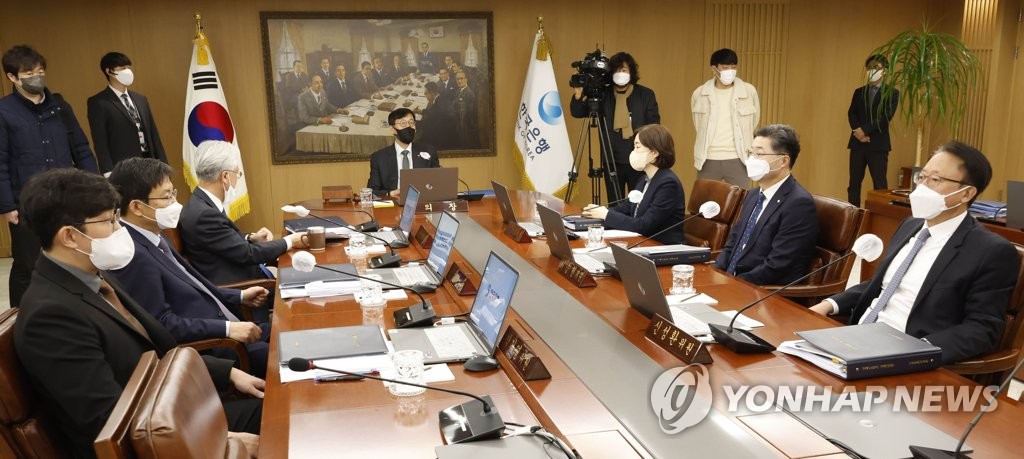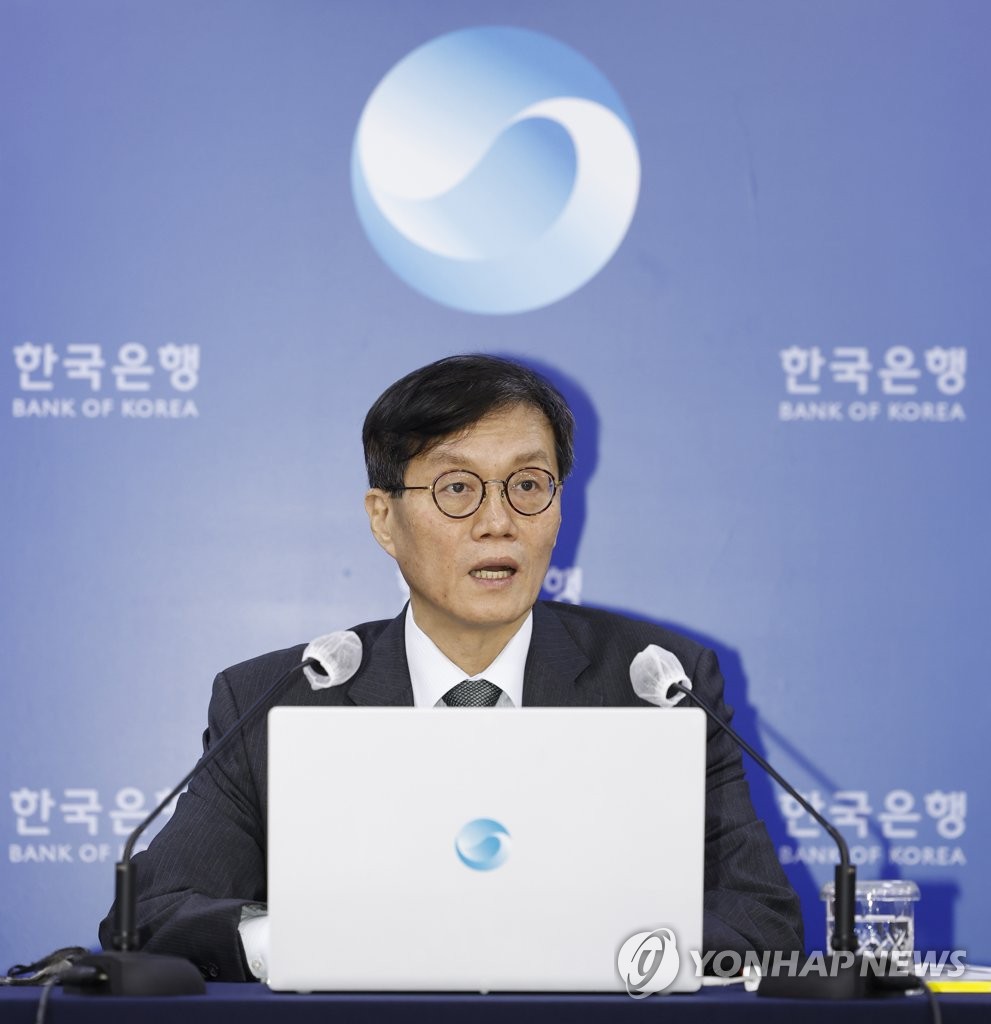- California Assembly OKs highest minimum wage in nation
- S. Korea unveils first graphic cigarette warnings
- US joins with South Korea, Japan in bid to deter North Korea
- LPGA golfer Chun In-gee finally back in action
- S. Korea won’t be top seed in final World Cup qualification round
- US men’s soccer misses 2nd straight Olympics
- US back on track in qualifying with 4-0 win over Guatemala
- High-intensity workout injuries spawn cottage industry
- CDC expands range of Zika mosquitoes into parts of Northeast
- Who knew? ‘The Walking Dead’ is helping families connect
BOK raises rate to fight inflation; expectations for pause grow amid economic woes
The Bank of Korea (BOK) delivered yet another rate hike Friday to rein in stubbornly high inflation, but expectations grew for the central bank to pause monetary tightening for months in the face of mounting worries over an economic slowdown.
BOK Gov. Rhee Chang-yong, however, said it is “premature” to discuss a rate cut before the end of this year, adding that such discussion will not start until there are clear signs that inflation is moderating to a midterm target range of 2 percent.
The BOK convened this year’s first rate-setting monetary policy board meeting early in the day and lifted the benchmark seven-day repo rate from 3.25 percent to 3.5 percent, the highest level since late 2008.
This marked the seventh straight rate increase since April last year, the longest span of tightening, and followed a 0.25 percentage point hike delivered at the last meeting of 2022 in November.
It also represented the 10th increase of a combined 3 percentage points since August 2021, when the BOK began “normalizing” the ultralow rate, put in place to bolster the pandemic-hit economy, and fighting fast-rising inflation pressure.

“The board judges that the additional 25 basis points hike is warranted to ensure price stability, as inflation still remains high and is projected to be above the target level for a considerable time, although the domestic economic growth rate is expected to be below the November forecast,” the BOK said in a statement explaining the decision.
“The board will continue to conduct monetary policy in order to stabilize consumer price inflation at the target level over the medium-term horizon as it monitors economic growth, while paying attention to financial stability,” it added.
Friday’s rate hike came as inflation remains high despite a recent letup caused by a fall in crude oil prices.
In December, consumer prices, a major gauge of inflation, rose 5 percent on-year, sharply slowing from a 6.3 percent spike in July, the fastest rise since November 1998. They still remain higher than the BOK’s medium target range of 2 percent.
The BOK recently predicted inflation pressure will likely moderate “steadily” this year but prices could grow at around 5 percent “for the time being.”
Experts are cautiously predicting the BOK will end more than a year of rate hikes either later this year or early next year, as it will not be able to turn a blind eye to growing recession woes.
South Korea’s economy is facing growing risks of losing steam with exports, a major driver of growth, on the decline for months amid worries over a global recession. Consumption and corporate investment are also under strain from the tumbling real estate market and high borrowing costs due to the central bank’s monetary tightening.
In November, the BOK revised down its growth projection for 2023 to 1.7 percent from 2.1 percent predicted three months earlier.
The central bank said in a separate press release on Friday that economic growth is expected to fall below the latest projection, citing a global recession and the impact of steep rate hikes on the overall economy.
In a post-meeting press conference, Gov. Rhee echoed the concerns, saying that the country could post negative growth in the fourth quarter of last year and that tough economic conditions will linger throughout the first half of this year.
“China’s economic situations worsened in the short term as the number of coronavirus patients increased at a fast pace, causing our exports much,” he said, explaining reasons for the bleak outlooks. “Domestic spending dwindled more than expected and other December indicators got worse, affected by such things as the Itaewon accident and disputes in the labor sector.”
Asked about the terminal rate level in the ongoing tightening cycle, Rhee said that three of the seven-member monetary policy board think it is desirable for the BOK to stand pat at 3.5 percent for about three months to come to gauge the impact of previous steep hikes in the cost of borrowing.
Three other members left the chances of a further quarter point hike open depending on economic conditions, Rhee added, though he declined to elaborate on his position.
“I will make my opinion known when it is needed to make a decision,” he told reporters.
As for the possibility of a rate cut before the end of this year, he said it is “premature” to discuss the matter until the central bank becomes confident that inflation is trending down to the midterm target range of 2 percent.
“For the time being, we will have to stick to inflation-focused monetary policy,” he said. “It is necessary to carry out monetary policy delicately by also taking into consideration economic conditions and financial stability when inflation falls below 5 percent and continues to show a downward trend.”












